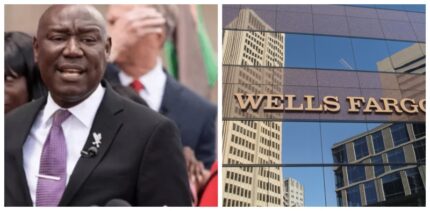One of the world’s largest banks is being accused of engaging in dishonest practices when interviewing people for positions within the company. A report by The New York Times found several employees, both past and present, say the Wells Fargo has had a years-long practice of conducting interviews with Black and female candidates for jobs already offered to others.

The New York Times began investigating after Joe Bruno, a former executive at Wells Fargo was fired after complaining about the practice, calling it “inappropriate, morally wrong, ethically wrong.” The bank says Bruno was fired for retaliating against another employee.
Bruno, a 58-year-old white man, worked in the wealth management division at Wells Fargo’s corporate offices in Jacksonville, Florida, but was let go in the summer of 2021 when the whistleblower brought up to his superiors that he had been instructed to conduct the “fake interviews” with people who were not going to ever be considered for the jobs.
Seven other current and former bank employees said they were also told to meet with “diverse” jobseekers, despite there not being a real chance for them to be hired. Five others said they knew about the practice and/or helped to arrange it.
The goal was to create the appearance that Wells Fargo was actively engaged in an active inclusion campaign, tapping into people of color and women, to diversify the bank’s workforce — an effort to align the brand with government regulators and auditors.
Wells Fargo boasts on its website it has 160 years of diverse, inclusive, and equitable action.
However, the bank has gotten into big trouble for having a company still overwhelmingly white and male.
Forbes reported in 2020, Charles W. Scharf, the company’s CEO, claimed the reason why Wells Fargo lacks diversity is because there is a “limited pool of Black talent to recruit from,” claiming his company is not the only one with a pipeline problem. The article further stated when it came down to who gets hired, 80 to 85 percent of new hires are made based on networking.
The bank pledged to do better, specifically around the civil upheaval the nation was experiencing after the deaths of George Floyd, Breonna Taylor, and Ahmaud Arbery. Scharf apologized for saying there were not enough qualified Black candidates and adopted a formal policy that required a diverse slate of candidates to be interviewed for any open positions paying $100,000 a year or more.
Hired two years ago, in a short time Bruno progressed to become the market leader for the company’s Jacksonville Wells Fargo Advisors, overseeing 14 branches. In this capacity, he prided himself on his work to create diversity in his teams.
He was charged to fill two categories of jobs — financial advisers and financial consultants, who work alongside advisers.
Bruno said to NYT he was told repeatedly to conduct interviews with Black candidates for the financial consultant positions, which offered lower salaries. He contends the bank had no intention of hiring those candidates because either he or someone he reported to had already selected a fill for the job.
He eventually refused to entertain the interviews, saying, “I got a Black person on the other side of the table who has no shot at getting the job.”
The chief executive of Wells Fargo’s wealth and investment management business, Barry Sommers, who headed Bruno’s division, scoffed at his account of the interviews, saying, “there is absolutely no reason why anyone would conduct a fake interview.” The positions were less than the $100,000 threshold required by Wells Fargo’s 2020 policy.
Raschelle Burton, a Wells Fargo spokeswoman, said in an email, there was an expectation that all employees would follow the hiring policies and guidelines as set by the company’s human resource department and C-Suite. “To the extent that individual employees are engaging in the behavior as described by The New York Times, we do not tolerate it,” she said.
She further stated she was aware of “informal directives” regarding hiring diverse candidates murmured throughout the company for a long time, linked to an earlier regime of executives before the 2020 talent turnover.



